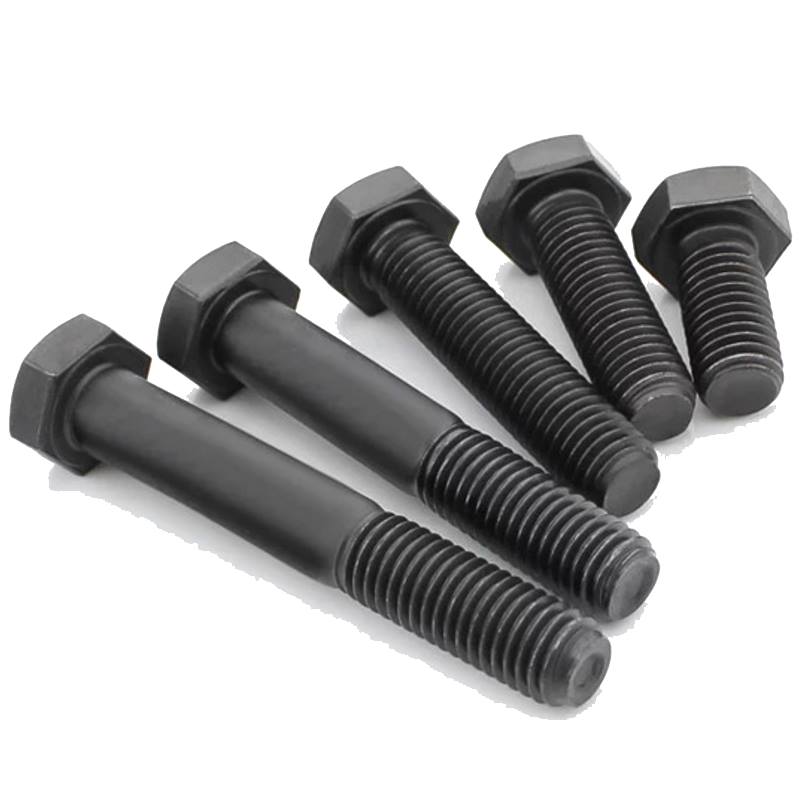Top Popular Aluminum Nuts for Various Applications and Uses
Dec . 02, 2024 06:59 Back to list
Top Popular Aluminum Nuts for Various Applications and Uses
The Importance of Aluminum Nuts in Modern Manufacturing
Aluminum nuts play a crucial role in modern manufacturing and engineering due to their lightweight properties, corrosion resistance, and versatility. These small yet significant components are found in a myriad of applications, ranging from aerospace to automotive, and even in everyday household items. In this article, we will explore the various aspects of aluminum nuts, their advantages, and their applications in various industries.
Characteristics of Aluminum Nuts
Aluminum nuts are typically made from aluminum alloys, which provide enhanced strength and durability compared to pure aluminum. The most common alloys used for these nuts are 6061 and 7075, both of which are known for their excellent mechanical properties. Aluminum nuts are characterized by their lightweight nature, which makes them ideal for applications where weight reduction is critical, such as in aerospace engineering and automotive manufacturing.
Furthermore, aluminum nuts exhibit excellent corrosion resistance, mainly due to the natural oxide layer that forms on their surface. This property allows them to maintain their integrity in harsh environments, making them suitable for outdoor applications and marine environments. Additionally, aluminum is a non-magnetic material, which can be an essential attribute in applications where magnetic interference needs to be minimized.
Advantages of Aluminum Nuts
One of the most significant advantages of aluminum nuts is their weight. Compared to steel or other heavier metals, aluminum nuts can significantly reduce the overall weight of an assembly. This is particularly beneficial in industries such as aerospace, where every ounce counts in optimizing fuel efficiency and overall performance.
Furthermore, the corrosion resistance of aluminum nuts contributes to their longevity and reliability. Components that are resistant to rust and degradation can lead to lower maintenance costs and fewer replacements over time. This durability makes aluminum nuts a cost-effective choice in the long run, despite their potentially higher initial cost compared to traditional steel nuts.
famous aluminum nuts

Another advantage is the ease of machining and fabrication. Aluminum nuts can be produced with high precision, allowing manufacturers to customize them to fit specific requirements. This versatility makes aluminum nuts suitable for a wide range of applications, from custom machinery to consumer products.
Applications of Aluminum Nuts
The applications of aluminum nuts are vast and varied. In the aerospace industry, they are essential components in aircraft assembly and maintenance. Their lightweight nature contributes to reducing the overall weight of aircraft, which is critical for flight efficiency and fuel consumption. Furthermore, the corrosion resistance of aluminum nuts ensures that they can withstand the harsh conditions faced in aviation.
In the automotive sector, aluminum nuts are increasingly being used in the production of lightweight vehicles. As manufacturers strive to create more fuel-efficient and eco-friendly cars, the use of aluminum nuts helps reduce the weight of various components, contributing to improved fuel efficiency and performance.
Beyond aerospace and automotive, aluminum nuts are used in construction, electronics, and furniture manufacturing. In the construction industry, they are often employed in structural applications where weight and corrosion resistance are essential. Similarly, in the electronics industry, aluminum nuts help secure components while ensuring that the devices remain lightweight.
Conclusion
In conclusion, aluminum nuts are a vital component in modern manufacturing and engineering. Their lightweight properties, corrosion resistance, and versatility make them suitable for a wide range of applications across various industries. As the demand for lightweight and durable materials continues to rise, the popularity and importance of aluminum nuts are expected to grow even further. With their numerous advantages, aluminum nuts will undoubtedly play a significant role in the future of manufacturing, contributing to innovations and improvements in efficiency across different sectors. Understanding their characteristics and applications can help engineers and manufacturers make informed decisions, ensuring that they capitalize on the benefits that aluminum nuts offer in their respective fields.
Latest news
-
High-Quality Panel Stud Bolt Reliable Panel Stud Bolt Factory & Suppliers
NewsJul.08,2025
-
High-Precision Fine Thread Locknuts Manufacturer & Supplier Custom Solutions
NewsJul.08,2025
-
PH Imperial Stud Bolt – High Strength Fasteners from Leading Supplier & Factory
NewsJul.07,2025
-
High-Quality Allen Wrench Bolts Leading Factory, Company & Suppliers
NewsJul.07,2025
-
Wholesale Ball Stud Bolt - High Quality Supplier & Factory Price Reliable Wholesale Ball Stud Bolt Company
NewsJul.06,2025
-
High-Strength Alloy Bolts Manufacturer & Supplier Quality Alloy Fasteners Factory
NewsJul.06,2025
